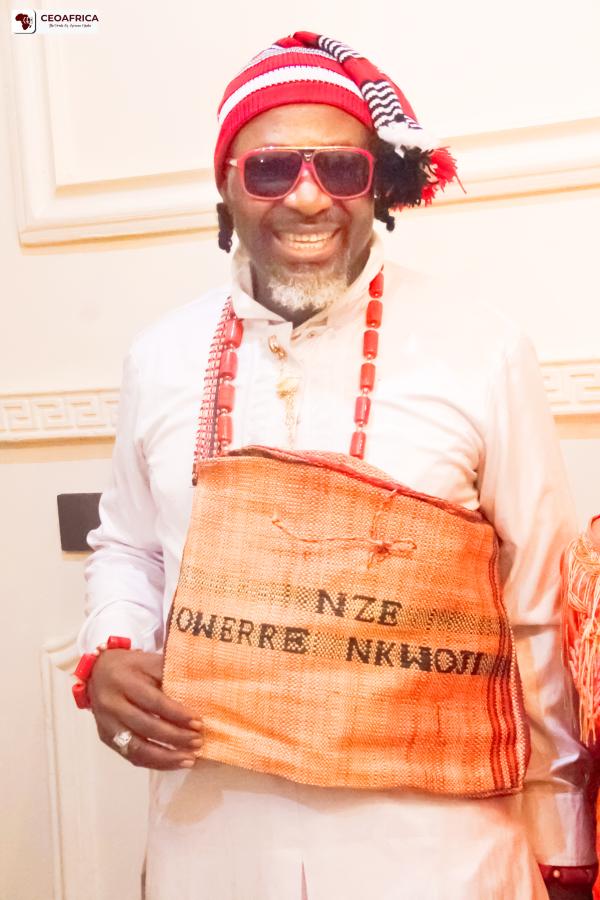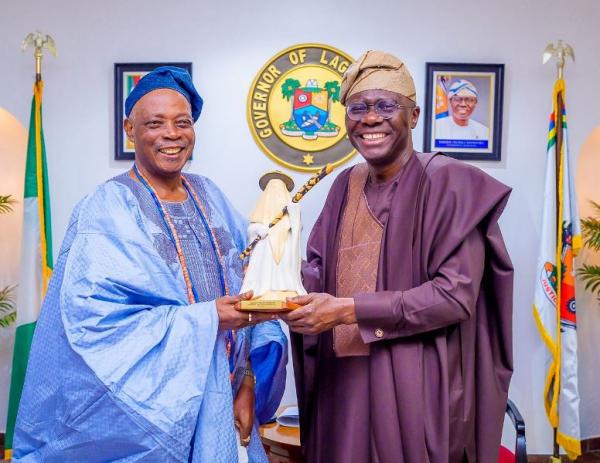
Nestled in the heart of Imo State, Owerre-Nkwoji is a community in Nkwerre Local Government, South-East Nigeria. Rich in culture and tradition, this area is home to thirteen vibrant villages, echoing with the stories of its ancestors and the aspirations of its descendants. Nze Barrister Luke, the first Nze in Umoke village mentioned that "Owerre-Nkwoji has 13 villages and each village have a Nze". Farming is a vital part of the economy in Nkwerre LGA, with crops such as cassava, yam, oil palm, and vegetables grown in the area. Other important economic activities include woodwork, welding, and auto repairs. One major food that is particular to the Owerri people is known as "Ofe Owerri". It is sometimes referred to as the king of soups in some Igbo communities. Christianity is the dominant religion in Owerri, with Catholics and Anglicans having the largest followings.
Owerre-Nkwoji is a community deeply rooted in tradition. The people of this vibrant town hold their cultural heritage in the highest esteem, recognizing the importance of preserving the customs and practices passed down through generations. The Igbo proverb, "Ọkpụkpụ a na-echekwabara akwụkwọ ndụ" (the bone kept for the dry season), aptly describes their reverence for tradition, seeing it as a vital element for the community’s endurance and continuity. Whether through festivals, rituals, or everyday practices, Owerre-Nkwoji’s commitment to their ancestral ways remains unwavering, creating a strong sense of identity and unity among its people.
Tradition is a phenomenon that is connected with the past. It has to do with beliefs and practices, ideas and norms that have been there through generations. It could be seen as a laid down procedure or due process bequeathed to a people through experiences of the past. It is an existing set of beliefs, practices, teachings and modes of thinking that are inherited from the past which may guide, organize and regulate ways of living and of making sense of the world. As human beings, we are embedded in our cultural traditions. Therefore, tradition cannot be treated as something purely external which can be simply accepted or rejected on the basis of rational analysis neither can it be treated as something which is wholly other as if one could continue to be a person even if tradition were entirely rejected. According to a scholar, "Tradition is not the worship of ashes, but the preservation of fire".
In traditional Igbo society, the primary religion revolved around the worship of Ala, or Mother Earth. This sacred belief system emphasized the importance of respecting and adhering to natural laws and taboos that protected the sanctity of the earth. The phrase “imeru ala” (to soil the earth) reflects the deep reverence for the earth, and the consequences of violating its sacredness were taken very seriously. This reverence for the earth gave rise to the cult of Mother Earth, which evolved into what is known as Odinani among the Northern and Western Igbo, and Amaala among the Southern Igbo groups.
There is a popular saying that says “Igbos love titles”. Title-taking is an inherent element of the Igbo culture. In Igboland, title-taking is valued as it is one of the greatest instruments of social control and authority and as such titled men are greatly respected. In typical Igbo communities, people are not known, called or greeted by their given names, but rather by their titles. It is a sign of respect to confer an individual with traditional or chieftaincy title and the title is usually conferred to men of substance or people that have distinguished themselves from others by a traditional ruler. Various titles exist in different parts of the Igboland such as Ichie, Nze, Ozo, Ebubedike, Ogbu Agu, Odibeze, Ogbuefi, Iyom etc. the most prominent among them is the Nze na Ozo title.
Nze na Ozo is the highest and most important socio-political and religious all-male group that is highly revered in Igboland. It is sacred institution performed by initiated men who bridge the gap between the visible and unseen world of the ancestors. Ndi Nze na Ozo are regarded as the custodians of trust, dispensers of justice and moral compass of the society. There are also certain rules and customs that regulate title-taking in Igboland, namely women are not permitted to take the Nze na Ozo title etc. The Nze na Ozo title is seen as a major symbol of prominence in the land because the title-taking event is organized with an abundance of yam, wine, meat and all other staple foods; all of which symbolize prosperity in Igbo culture. An Nze na Ozo title holder is easily identified by the beads around his ankle and the ankles of his first wife (Lolo), and also the eagle feather fixated on his red cap. Anyone who successfully goes through the stipulated processes would have been considered to be fully initiated, and his counterparts will no longer have any inhibition in giving him the traditional Igbo three(3) back hand salute and hand shake (ina ito) which is social greeting ritual that is reserved only for the initiated.
A scholar once said "The Igbo believe that a man who calls his kinsmen to a feast does not do so to save them from starving. They all have food in their own homes. When we gather together in the moonlit village ground, it is not because of the moon. Every man can see it in his own compound. We come together because it is good for kinsmen to do so". At the forefront of this belief system were the Nze na Ozo, who served as the custodians of the earth’s sacredness.
The Nze na Ozo society remains one of the most revered traditional institutions in Igbo culture. The term Nze originates from Nzerem, meaning one who abstains from evil deeds that desecrate the Earth, which is considered sacred (Alinso). The word Nze closely associates with Nso, signifying something hallowed or avoided. Contrary to popular belief, the Nze title did not originate from Nri; it is as ancient as Igbo culture itself, similar to the Eze title. One becomes an Nze through recognition as a powerful and upright individual by the community and subsequent investiture by the Eze. Therefore, Nze and Ozo are distinct titles with different meanings.
The Nze title marks high moral standing and spiritual purity. Nze titleholders serve as custodians of the community’s spiritual and ethical standards. They act as adjudicators, protectors of shrines, and keepers of religious affairs. The process of becoming an Nze involves rigorous scrutiny of one’s character and achievements.
Nze Christian Okechukwu Chinyere, Emmanuel's longtime friend said that “You cannot be given this title without good character. No matter how much wealth you possess, if you do not embody integrity, you cannot be initiated”.
The Eze’s recognition is crucial for one to attain the Nze title. Nze titleholders play a vital role in maintaining the spiritual and social order within the community. They act as minor priests, assisting the Eze in religious ceremonies and rituals. Their duties include resolving disputes and ensuring justice within the community. They safeguard and ensure respect for sacred sites. Additionally, they conduct rituals and ceremonies to honor the deities and ancestors. The Nze title qualifies one as a red cap titled man of a community and permits the titleholder to discuss matters of great importance in the community.
Certainly! An Nze in Igbo culture holds a significant role and is highly respected. Here are some of the key functions of an Nze:
1. Spiritual Leader: The Nze acts as a custodian of the community's spiritual and ethical standards. They are responsible for maintaining the spiritual well-being of the community and ensuring that traditional religious practices are upheld.
2. Adjudicator: Nze titleholders serve as judges and mediators in resolving disputes within the community. They ensure justice and fairness in conflicts and maintain social harmony.
3. Protector of Shrines: They are responsible for protecting sacred sites and ensuring that they are respected and maintained.
4. Ceremonial Role: Nze titleholders assist in conducting religious ceremonies and rituals to honor deities and ancestors.
5. Moral Compass: They uphold and promote the moral values of the community, serving as role models for ethical behavior.
6. Community Leader: As respected members of the community, Nze titleholders have a say in important community decisions and discussions.
The Nze title is a mark of high moral standing and spiritual purity, and those who hold this title are seen as pillars of the community.
Before one could become an Nze, he had to be recognized by the community as a powerful and upright man, and his approval had to come from the deities. The investiture will be performed by the Ezeala, making the Nze title distinct from that of Ozo. Nze primarily served as adjudicators, protectors of shrines, and guardians of religious affairs within the community. They were minor priests, while the Ezes were the chief priests and living deities. A man could not become an Nze without the Eze’s recognition, as the Nze title was considered a spiritual role, believed to be God-given. Integrity and dignity were the hallmarks of an Nze, and wealth alone was not sufficient for this title.
Nze Barrister Luke, the first Nze of this generation in Umoke village mentioned that "before one can be qualify to be an Nze Owerre in Umoke, he has to pass through Nze Nnenato where he will be interviewed to find out if he has integrity and personality to join the fraternity".
The Momentous Initiation
In the heart of Umoke Village, a momentous initiation ceremony unfolds. The mantle falls on Emmanuel Ezirim, a community pharmacist and a highly respected figure, was initiated into the revered title of Nze na Ozo. Known for his humility and unwavering dedication to his community, Emmanuel embodied the very essence of the Igbo proverb: "Ebe onye dara ka chi ya kwaturu ya" (wherever a person falls, that is where their god pushes them down). His life’s journey was a testament to this belief, as he rose from humble beginnings to become a respected figure in his village.
Among the distinguished guests present at the ceremony were His Royal Majesty Boniface Chukwuemeka Unogu, the Ishigbo of Owerre-Nkwoji, High Chief Chijioke Francis Akunnia Tassie, the Lord Mayor of Owerre-Nkwoji, Pharm.(Mazi) Sam Ohuabunwa, Former PSN President, and Pharm. Kenneth Onuegbu (FPSN), NAIP National Chairman. The event also saw participation from Nzes, religious leaders, societal groups, community members, and well-wishers. Their presence added to the significance of the event, underscoring the importance of the occasion within the pharmaceutical and broader community.
Emmanuel Chidi Chukwumaeze Ezirim popularly known as E-Doggy, a devoted son of the prominent Ezirim family, was known for his commitment to upholding Igbo traditions. A community leader, he was born and raised in Owerre-Nkwoji, a town known for its rich cultural heritage and strong sense of identity. Growing up in a family deeply rooted in tradition, Emmanuel learned the values of service, humility, and respect for the ancestors. His late parents, Sir Josiah U. Ezirim and Lady Cecilia N. Ezirim, instilled in him a sense of purpose, encouraging him to honor their legacy by contributing positively to the community.
Emmanuel Ezirim, the President and CEO of Central Point Pharmacy, he is renowned for his innovative contributions to the field of pharmacy, leaving a significant impact on institutions such as The Ohio State University (OSU) and the Nigerian Association of Pharmacists and Pharmaceutical Scientists in the Americas (NAPPSA). An energetic entrepreneurial pharmacist, Ezirim is not only celebrated for his business acumen but also for his diverse talents as an accomplished athlete, author, actor, bodybuilder, and philanthropist.
A man of vision and dedication, Emmanuel has consistently engaged in various community initiatives aimed at uplifting the lives of his fellow villagers. Today, as he embraces the esteemed title of Nze na Ozo, Emmanuel not only honors his family's legacy but also commits himself to the well-being and progress of all thirteen villages within Owerre-Nkwoji. His investiture is a testament to his unwavering resolve to serve and inspire future generations, solidifying his place in the tapestry of Owerre-Nkwoji’s history.
The Nze Initiation
"Ugo chara acha adịghị echu echu"—this Igbo proverb, meaning "a mature eagle feather will forever remain pure," aptly describes Emmanuel. Despite not being the first male child in the Ezirim family, he received the approval and blessings from his older male cousins across the three households of his grandfather to become the Nze because he is a child of grace "Ọ bụ nwa amara". This act of unity and support underscored the Igbo belief in "Igwe bu ike" (there is strength in unity).
Sir. Lawrence Ibaochi Ezirim, the most senior of the Ezirim stated that "All the Ezirim gave him the blessing to go ahead, he is our ambassador. I don't have any regret doing this, he is our choice, many of the Ezirim willl still become an Nze but he is the first".
The initiation ceremony was a grand affair, steeped in ritual and symbolism. It involved days of fasting, prayer, and the performance of sacred rites, all underscored by the belief that "Ekwu si na azu na-ahụ" (words are like fishhooks; they bring things out). This proverb speaks to the power and responsibility of one's words, a principle that Emmanuel lived by.
In Igbo tradition the dead are always alive, Emmanuel chose to visit his late parents grave for their blessing and dedicate this title to them, Sir Josiah U. Ezirim and Lady Cecilia N. Ezirim honoring their sacrifices and vision for a bright future. As the ceremony unfolded, the air was thick with emotion and expectation. The community had come together to support one of their own.
In a spectacular turn of events, the sky opened up with rain shortly after Emmanuel's initiation—a rare occurrence during the dry season of Harmattan. Community members viewed this as a divine affirmation of his elevation, interpreting it as a “shower of blessings from Heaven”—a miraculous sign that the ancestors had sealed his investiture as Nze OnyeOmereNaNdu.
Following the successful investiture of Emmanuel Chidi Ezirim as Nze OnyeOmereNaNdu, friends and family spoke highly of his character and the significance of this achievement within the community of Owerre-Nkwoji...... (interview comes in)
Legacy and Impact
Emmanuel Chidi Ezirim expressed profound gratitude and humility, emphasizing the importance of his Igbo cultural heritage. “I feel honored and humbled to be initiated today,” he said. His influence extended beyond Umoke, as neighboring villages sought his counsel. His life was a living embodiment of the Igbo saying: "A person who brings kola brings life." Through his actions and teachings, Emmanuel brought vitality and continuity to the cultural fabric of his people.
In conclusion, the initiation of Emmanuel Ezirim into the Nze na Ozo society is not just a personal milestone but a beacon of cultural preservation and communal integrity. Pharm. Emmanuel Chidi Chukwumaeze Ezirim is a visionary leader, a devoted son, and a stalwart of tradition who has consistently demonstrated his commitment to the well-being of his community. His life's journey is a testament to resilience, grace, and the profound impact of service.
Emmanuel’s initiation into the Nze society underscores the values of integrity, unity, and respect for tradition that define Owerre-Nkwoji. His story reminds us that true leadership is rooted in service, and the legacy of one's actions speaks louder than words. As he embraces this esteemed title, may his days be long and prosperous, filled with continued blessings and successes.
"Ihe anyi na-amụta bụ onyinye na-abịa n’aka chi" (what we learn is a gift from the god)—and indeed, Emmanuel's life and achievements are a gift to his community, a legacy that will inspire generations to come.
According to Albert Einstein, "Life is like riding a bicyle. To keep your balance, you must keep moving". Move on Nze Emmanuel Chidi Chukwumaeze Ezirim!, the latest Nze in Owerre-Nkwoji; Umoke Village, a great leader, the man who believes in community service and development. Umoke Village, Owerre-Nkwoji community, Imo State, Nigeria and Nation at large are proud of your success and achievements. You have written your name on gold and history will be kind to you. Congratulations!!!






















